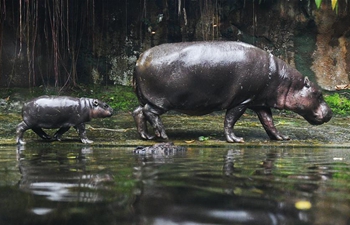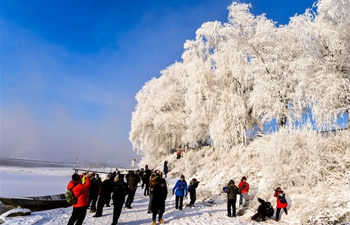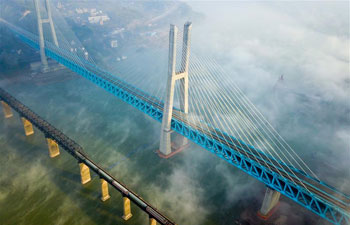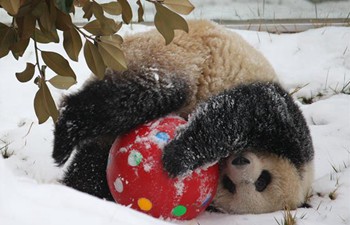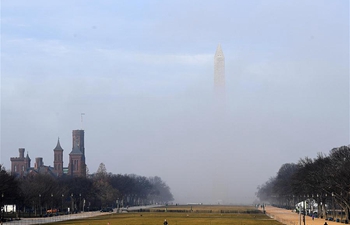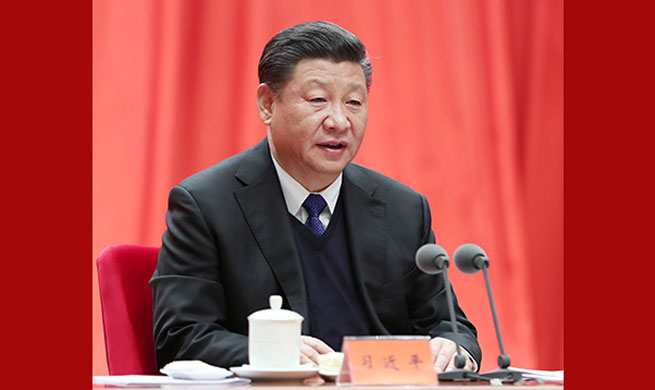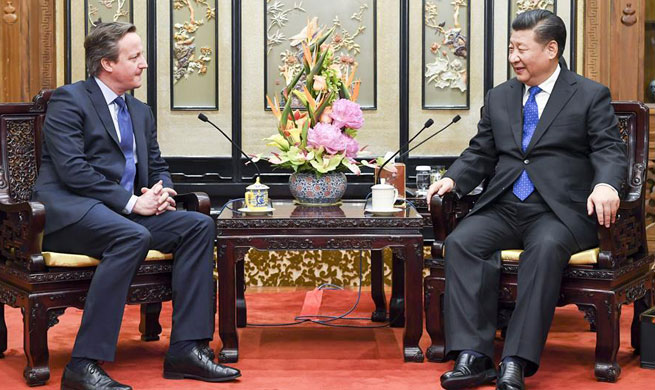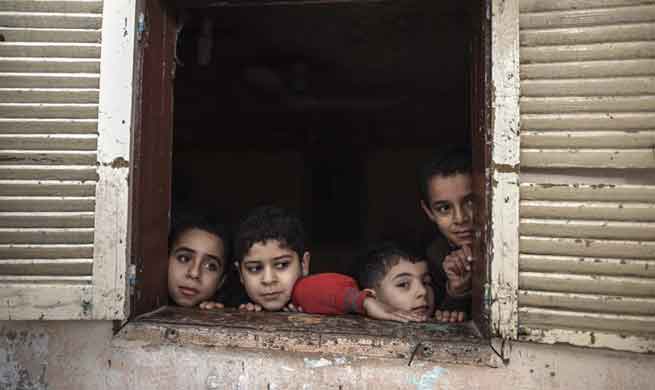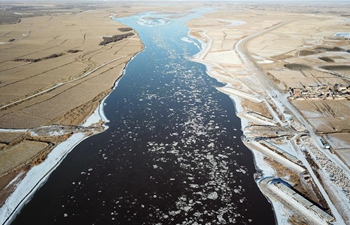ANKARA, Jan. 11 (Xinhua) -- Syrian government's ongoing offensive in Idlib province will be a test for the alliance of Russia, Iran and Turkey, three regional powers that support different actors on the battlefield.
Recent Idlib offensive of the regime, with support of Russia and Iran, escalated tension between the three countries, which were able to successfully calm down clashes through the Astana process.
Syrian regime's forces have increased military operations recently to impose control over Idlib and the Eastern Ghouta, the last two rebel bastions in Syria.
Turkey protested the Syrian regime's advance into the rebel- stronghold on the grounds that regime troops are targeting moderate opposition in Idlib, arguing that the move undermined prospects of an upcoming meeting in Black Sea resort Sochi on Jan. 29-30, where the regime and opposition groups will seek peaceful solution to the Syrian conflict.
The Turkish Foreign Ministry separately summoned Russian and Iranian ambassadors in Ankara on Tuesday and warned its partners for violation of Astana deal in a bid to stop the regime's attack on "moderate opposition" forces in northern province of Idlib, where "de-escalation zone" was declared by three guarantor powers.
"Russia and Iran must stop the Syrian regime. They should realize their duties as guarantor countries," Turkish Foreign Minister Mevlut Cavusoglu said on Wednesday.
"What I am seeing here is the use of the presence of al Nusra and HTS as an excuse to attack civilians and the moderate opposition," he stated.
Russia and Iran have backed Syrian regime while Turkey has supported its foes, but, despite the differences, they struck a deal in 2017 to set up de-escalation zones in Syria, helping reduce fighting.
Turkey has became the guarantor of some "moderate" rebel groups, while Iran and Russia is responsible for the acts of Syrian government.
Ankara and Moscow have many times not been seeing eye to eye on Syrian conflict since they have different interests in the region.
Turkey is irked with Russia for inviting Syrian Kurdish militia, the Peoples' Protection Units (YPG), which controls much of northeast Syria but is viewed by Ankara as a terror group and offshoot of the Kurdistan Workers' Party (PKK), to the planned meeting in Sochi.
Russia failed to convene the gathering over Turkey's objection about YPG's participation. Parties are still carrying on talks for the list of participants.
Elaborating on Ankara's concerns on the recent offensive in Idlib, Turkey is concerned on three negative outcomes, a Turkish official told Xinhua on condition of anonymity.
The Syrian regime's attacks on "moderate opposition" could cause throwback to Russian initiated national dialogue meeting in Sochi, because the talks aim peace negotiations also with those rebel groups, said the official.
Furthermore, the offensive could lead to collapse of Astana process and eventually the hardly established cease-fire in de-escalation zones.
The official also pointed at the fact that fresh conflict in northern Syria could trigger more displacement on its southern border. Ankara considers the regime offensive, supported by Iran-backed militias and Russian air power, aims to recover more territory from the rebels.
For the Russian part, Russia's Defense Ministry said its forces run in Hmeymim base in Syria repelled a series of drone attacks Saturday. The drones were sent from Idlib, an area controlled by so-called "moderate opposition" units, the Russian defence ministry's official newspaper Krasnaya Zvezda said Wednesday.
The ministry has written to the chiefs of the Turkish army and intelligence service to insist that the terms of a cease-fire are upheld, the newspaper said.
Russia will continue constructive cooperation with Turkey for Syrian course, but it will not give up fighting against terrorist groups such as al-Nusra, Russia's Izvestiya newspaper reported Thursday quoting anonymous Russian officials.
Hayat Tahrir al-Sham group, spearheaded by the former al-Qaeda affiliate in Syria that was known as the al-Nusra Front, is mainly dominating in Idlib.
On Thursday, Moscow attempted to ease the strain with Ankara as President Vladimir Putin said the attack at Russian air base was a provocation, aimed at undermining Russia's relations with its partners, including Turkey.
"Firstly, these are provocations aimed at the collapse of the earlier reached agreements. Secondly, that is also an attempt to destroy our relations with partners, Turkey and Iran. We clearly understand that, and therefore we will show solidarity," Russian media quoted Putin as saying.
"Russia and Assad try to find excuses to clear Idlib from rebels, even makes ones up if necessary. This puts Russia against Turkey more frequently," according to Deniz Zeyrek, daily Hurriyet columnist.
Recalling that Ankara was not able to build dialogue with the U.S. because of Washington's support to Syrian Kurdish militia, Turkey's leverage in Syria would weaken if it also looses cooperation with Russia, he said.




